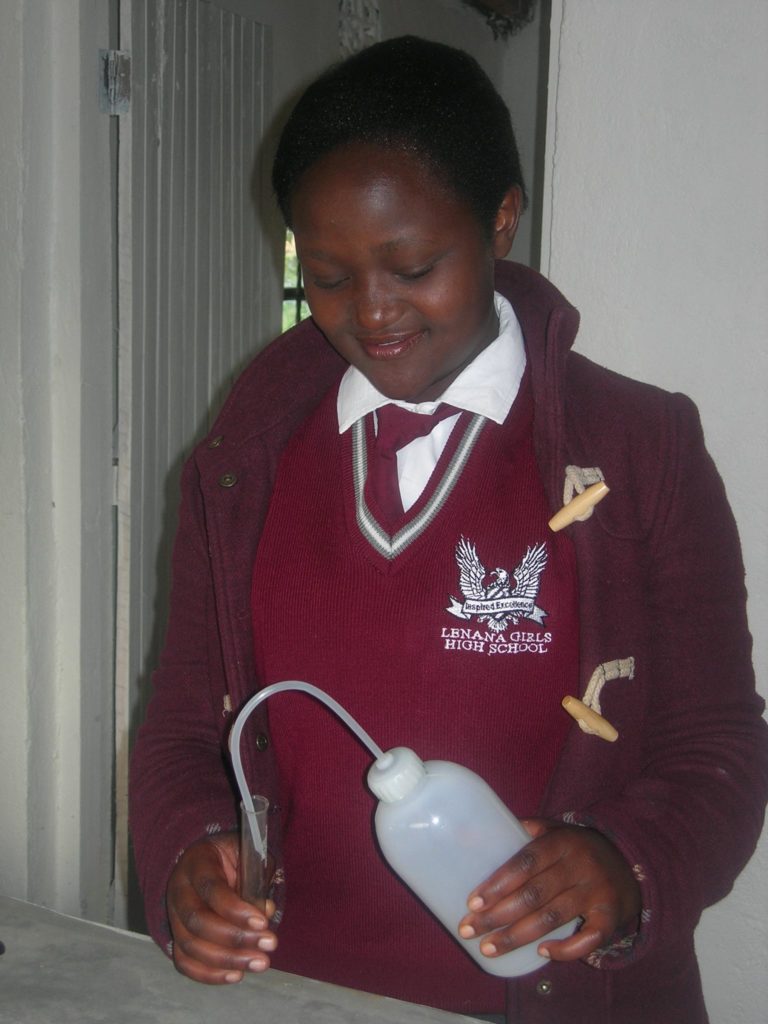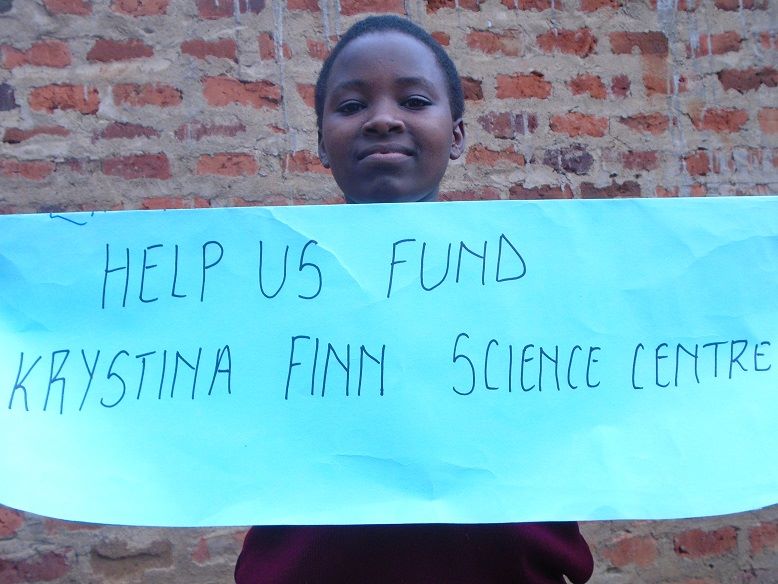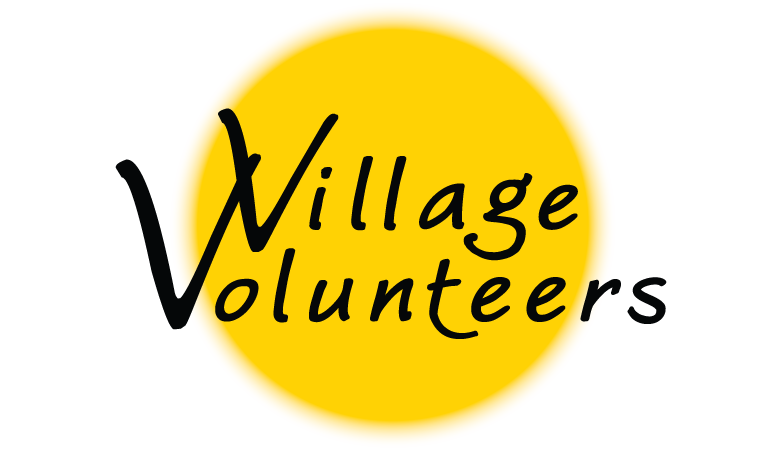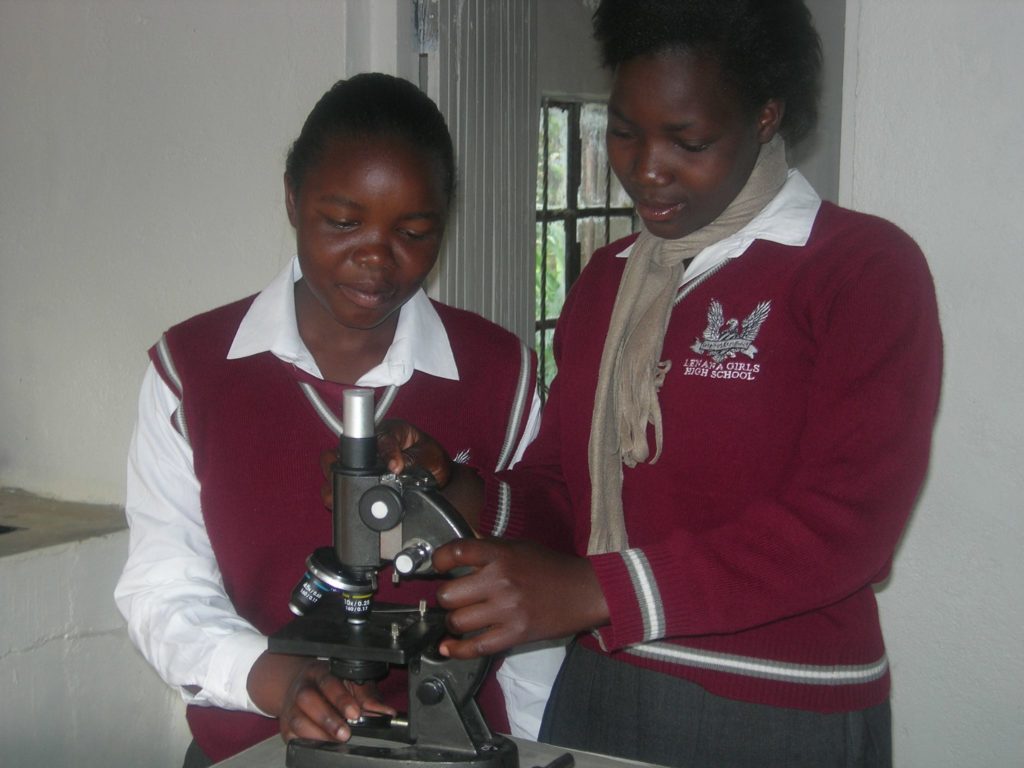By Joshua Machinga
There is no denying that deeply entrenched gender discrimination creates a bleak outlook for women and community development in rural Kenya. Through our work with village communities, we have realized that for larger payoffs, we have to put resources into women’s hands in poverty and promote gender equality. Giving girls greater choice and control over decisions that affect them helps break the cycle of poverty between one generation and the next. When women have equal access to education and successfully participate in business and economic decision making, they become a key driving force against poverty. By enhancing women’s control over decision making in the household, gender equality translates into better prospects and greater well-being of children, reducing poverty of future generations.
This was the premise for setting-up of Lenana Girls High School – to nurture their young girls’ self-confidence and them to make informed choices for their own lives and their community’s. And now, thanks to a recent grant from Circle of Sisterhood to Common Ground for Africa towards building a science laboratory for Lenana, the Krystina Finn Science Center, the school is making it possible for girls from a poor background to gain access to quality and competitive education. The center has been named in honor of alumni Village Volunteer Krystina Finn who dedicated months of service in Kenya with Common Ground for Africa and the Sister Freda Foundation, and who passed away from cancer in 2014. Through this science center and its lab, we want our students to understand the importance of practical science education, and through the grant have been able to purchase the following items for our science laboratory:
- Balance electronic scales
- Biology molds (10 samples including human skeleton).
- Microscope
- Chemical reagents
- 28 clamps
- Aspirator bottles (glass and plastics)
Without this equipment, several students would be unable to pass the Kenya Certificate of Secondary Education examination. This is because without a passing grade in the science exam (written in English, the third language for most students) students cannot pursue higher education. But now, with a well-equipped lab in place, for the first time, the school has been able to incorporate practical science education into the students’ course work. The Science laboratory currently benefits 56 students in all, who initially had no opportunity for education due to poverty and other social problems.
Lenana is training its teachers to use more laboratory learner-centered, participatory methods that empower our students to think and challenge and give them the best chance of success. Thus, even the staff and teachers at Lenana are being challenged daily in their efforts to implement new teaching techniques, such as participatory and experiential learning, which requires more effort, investment and reflection on their part. Lenana is indeed at the forefront of changing the educational culture in Kenya, thanks to Circle of Sisterhood.
In February 2016, Lenana accepted another 85 students in Form One. A student from Form One talks about why she enjoys studying at the lab:
When I was discovered to be pregnant and I realized that I couldn’t continue with studies, I felt really bad. After delivering my child I wanted to continue with my studies but my mother didn’t have the financial ability to support me. So I remained at home and took care of my baby. But after staying at home for a long time, I got news from a village elder that there was a school for girls who didn’t get a chance to go with studies due to pregnancy and who are not capable of paying the school fees. I am really happy to be given the opportunity to be in a laboratory again. I like Chemistry and Biology and I know the doors to reaching my dreams have opened.
Abigael Nyongesa, from One student at Lenana Girls HS, November 2015
 Every student at Lenana undergoes an intensive screening process to ensure that she fits the admission criteria: that she is vulnerable and has had difficulty in continuing her education previously; that she is able to perform at a basic academic level; that she has a supportive guardian or parent who advocates for their daughter’s or foster child’s right to complete secondary school; and most importantly, that she exhibits a desire to pursue her education. Lenana defines “vulnerable” as being orphaned with little familial support, extremely poor, became pregnant at an early age, is unsafe at home, and/or has been exploited in the worst forms of child labor.
Every student at Lenana undergoes an intensive screening process to ensure that she fits the admission criteria: that she is vulnerable and has had difficulty in continuing her education previously; that she is able to perform at a basic academic level; that she has a supportive guardian or parent who advocates for their daughter’s or foster child’s right to complete secondary school; and most importantly, that she exhibits a desire to pursue her education. Lenana defines “vulnerable” as being orphaned with little familial support, extremely poor, became pregnant at an early age, is unsafe at home, and/or has been exploited in the worst forms of child labor.
Lenana not only seeks to transform the lives of the individual girls attending its programs but aims for broader impact over the long-term as students return to their communities and become agents of change. Towards this end, students have already begun to reach out to poor households in their communities to provide vegetables and seeds from the Lenana’s gardens through our ‘Gardens for Life’ program, and are engaged in community service with both a local orphanage and a home for the elderly and disabled.
Thanks to their recent science education, Lenana students were confidently able to talk about soil health and macro organisms at a recent community outreach seminar on plant health education. The seminar proved educational for the community and helped build our students’ self-esteem. The success of the day was reflected in the comments from some of our students and community members:
“….I would like for the seminar to be done every 3 months because it helps us, the youth, to be confident and to know how to talk with older people……”
“…..we need to be strong and know that girls are good and confident like the boys. Today I know that we can be….”
 Help support science education at Lenana Girls’ High School through helping fund the Krystina Finn Science Center
Help support science education at Lenana Girls’ High School through helping fund the Krystina Finn Science Center

